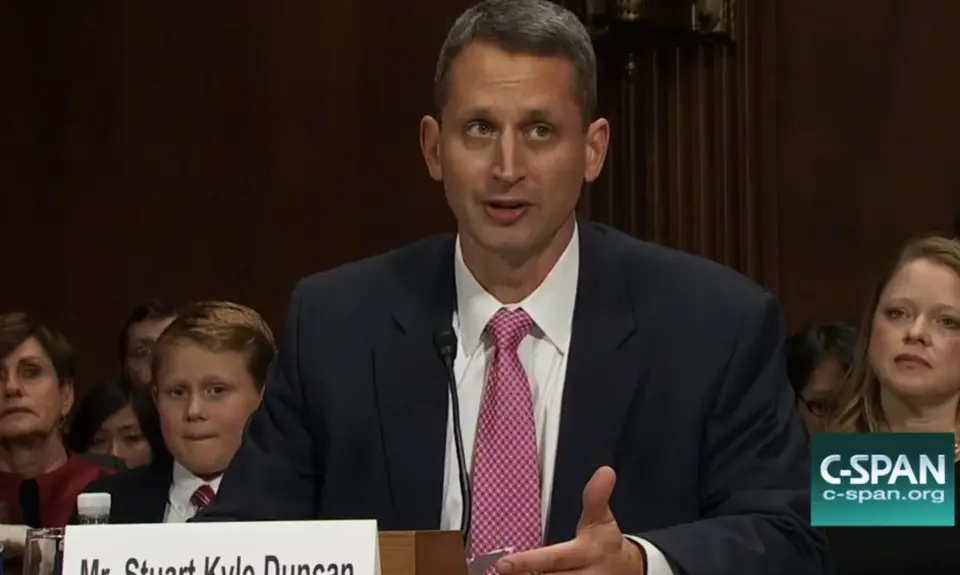“Confirmed Judges, Confirmed Fears” is a blog series documenting the harmful impact of President Trump’s judges on Americans’ rights and liberties. Cases in the series can be found by issue and by judge at this link.
In yet another ruling on Texas’ COVID-related ban on abortions, Trump Fifth Circuit judge Kyle Duncan cast the deciding vote to uphold Texas’ ban on medication-induced abortions. This reversed an injunction ordered by a district court, as well as the appeals court’s own previous order allowing such abortions. The April 20th, 2020 decision is In re Abbott.
As reported earlier in this blog, Texas governor Gregg Abbott issued a severe order in March banning and threatening jail time for performing abortions during the COVID-19 pandemic. Unlike bans in other states, the Texas ban has largely been upheld due to 2-1 decisions by the Fifth Circuit, with Duncan as the deciding vote. After Texas abortion providers took the issue to the Supreme Court, the Fifth Circuit panel had retreated and allowed the performance of medically induced abortions despite Abbott’s order. But on April 20, the Fifth Circuit reversed itself and upheld Abbott’s ban.
Specifically, Duncan cast the deciding vote in an April 20 order that granted a writ of mandamus against a district court decision on April 9 that had entered a temporary restraining order against Abbott’s ban, particularly as it applied to abortions induced by medication. The unsigned opinion claimed that the district court order “usurps the state’s authority to craft emergency public health measures.”
Judge James Dennis strongly dissented. He noted that “once again” the majority ruling was “at odds with seemingly every other federal court” to have considered state abortion bans during the pandemic. He went on to state that the decision “ignores the words of its own ruling” that previously allowed abortions by medication. Dennis explained that there was “sufficient evidence in the record” to conclude that enforcement of the ban on abortion by medication plus all other types of abortion “was pretextual and motivated not by a desire to advance public health,” but instead was an “effort to reduce the number of abortions performed for its own sake.” Dennis concluded that the majority’s decisions had served largely to “contribute to a confusion that is likely more disruptive than the alleged harm it sought to prevent.”
Hopefully, Dennis pointed out, the effects of the majority’s decision will be only temporary because, after April 22, abortion providers will be able to argue that their care falls into a “new exception” to the Abbott order that “exempts services provided by health facilities that certify they will not draw upon any public supply” of personal protective equipment. But Duncan has once again demonstrated the extreme threat to reproductive rights posed by Trump appellate judges.
